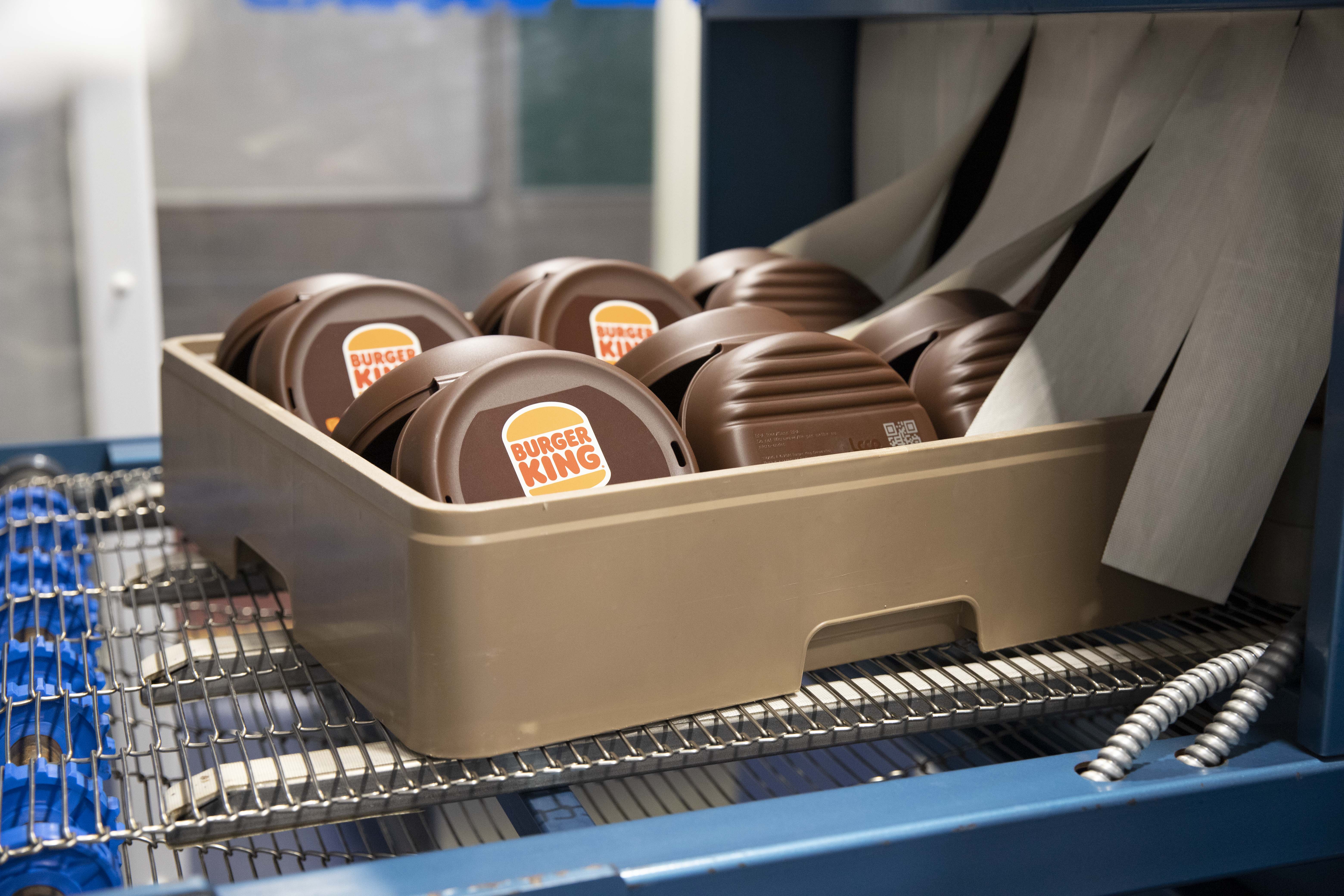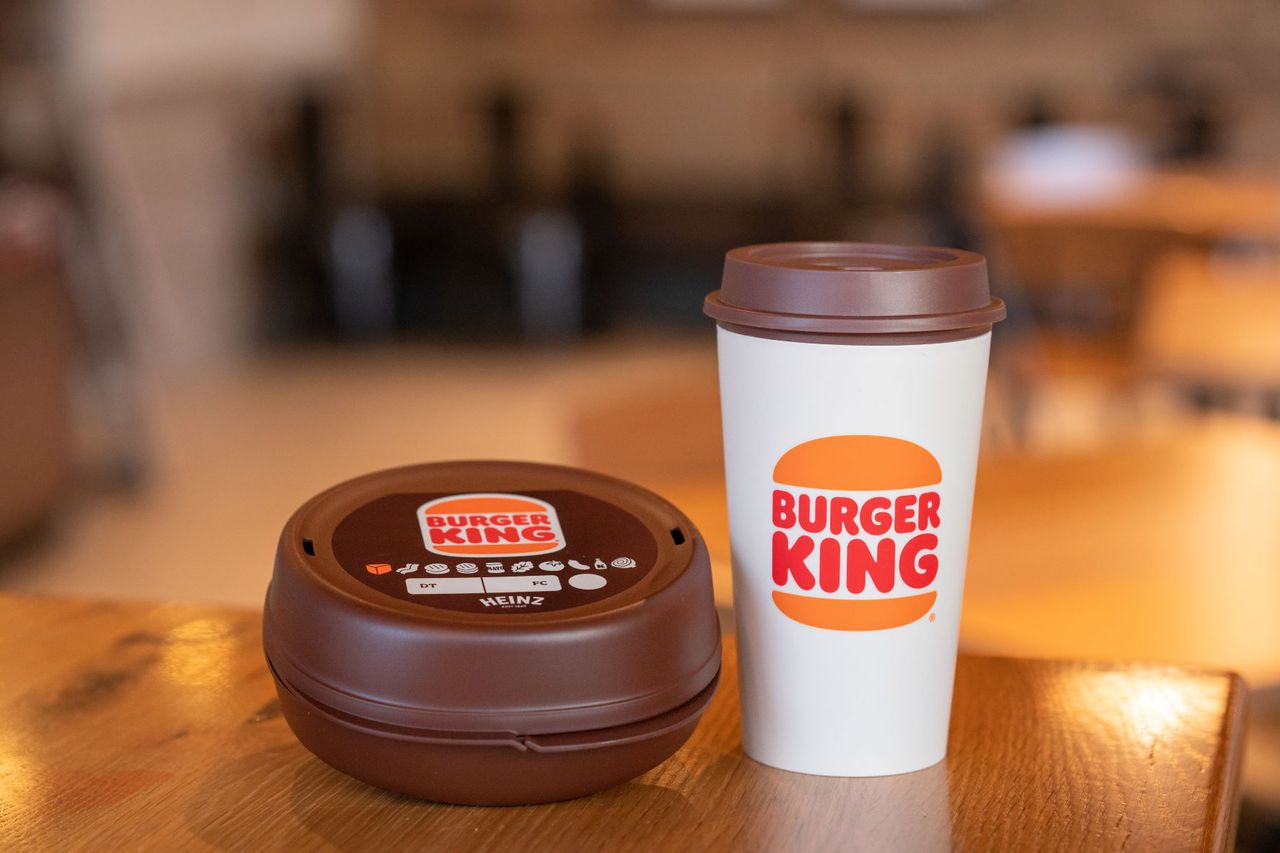

Burger King has today announced the start of a pilot to use reusable and returnable packaging (26 April).
The new trial, in partnership with the re-use platform Loop, will roll out in five restaurants located in Ipswich and Newmarket, where customers will be offered to pay a £1 deposit for a reusable cup or burger container, instead of using throwaway packaging.
To return either of the two packaging items, consumers will be able to download the Loop app, scan a barcode on their packaging and return it to a Loop bin – which will be located outside Burger King restaurants where the trial is taking place. Other locations will also be available via the Loop app.
A refund of the deposit will be offered once the burger container or reusable cup has been returned. If the trial is successful, based on customer feedback, Burger King plans for the scheme to be rolled out across the country on a permanent basis.
Nicola Pierce, Director of Commercial Planning and ESG at Burger King UK, said: “We’re delighted to unveil a trial range of re-usable and returnable packaging for our restaurants.
“The launch of the new packaging from Burger King UK will include the first-ever re-usable and returnable ‘clamshell’ for burgers and sides in the UK. We’re excited to see how the trial performs over the next five months and help us reach our goal of eliminating single-use plastic within our restaurants by 2025.”
Tom Szaky, Founder and CEO of TerraCycle and Loop, added: “The partnership between Loop and Burger King UK enables customers in selected UK restaurants a simple and convenient way to trial re-usable packaging when ordering their favorite burgers, sides, and drinks. Consumer demand for more sustainable options is at an all-time high and the customer response to this exciting trial will be used to inform future plans for a long-term reusable and returnable packaging scheme.”
The scheme will run until 5 September and is part of the company's aim to reduce carbon emissions – its target being a ‘41 percent reduction in value chain emissions per restaurant by 2030, and zero per cent single-use plastics by 2025.’






